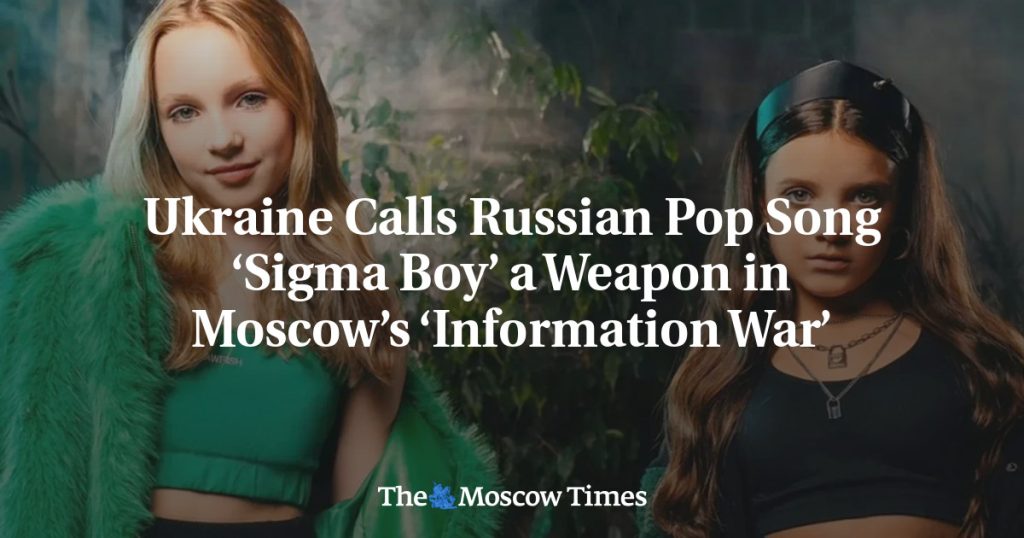The Rise of "Sigma Boy": A Viral Russian Pop Song Sparking Controversy
The Russian pop song “Sigma Boy” has taken the internet by storm, amassing over 73 million views on YouTube since its release in October. The catchy tune, performed by young singers Betsy (Svetlana Chertishcheva) and Maria Yankovskaya, has become a viral hit, but its popularity has also sparked significant controversy. Written by Mikhail Chertishchev, the song’s upbeat melody and lyrics have been interpreted in vastly different ways by audiences around the world. While some see it as a harmless pop anthem, others argue that it carries a deeper, more insidious message. At the center of the debate is the question of whether “Sigma Boy” is simply a fun song for young people or a tool of cultural and political influence.
Cultural and Political Undertones: Why “Sigma Boy” is Under Fire
Critics, particularly in Ukraine and Europe, have accused “Sigma Boy” of promoting a pro-Russian worldview and patriarchal values. The term “sigma boy” itself refers to an internet slang term used to describe a young man who is independent, successful, and nonconformist. While this archetype might seem appealing on the surface, Ukrainian officials and analysts argue that the song is part of a broader Russian strategy to spread its cultural influence and cement its political narratives. The Center for Countering Disinformation, operating under Ukraine’s National Security and Defense Council, has condemned the song as a form of “information warfare.” They claim that it reinforces ideas of dominance, masculinity, and disdain for weakness, while also glorifying the archetype of a “strong leader”—a trope often associated with Russian President Vladimir Putin.
Backlash from Unlikely Quarters: Traditionalists and Critics Weigh In
Surprisingly, “Sigma Boy” has also faced criticism from within Russia itself. The ultra-conservative Russian Orthodox movement Sorok Sorokov has accused the song’s creators of sexualizing children, urging the Russian Prosecutor General’s Office to investigate. These accusations stem from interpretations of the song’s lyrics and visuals, which some argue carry overly mature themes for performers so young. However, songwriter Mikhail Chertishchev has dismissed these claims, suggesting that critics like Sorok Sorokov are themselves projecting inappropriate interpretations onto the song. He has defended the track as a positive anthem about self-confidence and independence, insisting that it has been unfairly misunderstood.
The Broader Cultural and Political Significance of “Sigma Boy”
The controversy surrounding “Sigma Boy” reflects the deeper cultural and political tensions between Russia and the West, particularly Ukraine. For many Ukrainians, the song is not just a piece of music but a symbol of Russian soft power and ideological influence. They argue that it is part of a larger effort by Russia to shape public opinion and spread its worldview, especially among younger generations. This perspective is bolstered by the song’s portrayal of a confident, independent male figure, which some see as a thinly veiled endorsement of Russian nationalism and authoritarianism. At the same time, the song’s popularity across borders raises questions about the role of pop culture in shaping political attitudes and the extent to which art can be separated from ideology.
The Role of Social Media in Amplifying the Debate
The furor over “Sigma Boy” has been amplified by social media, where the song has been shared, discussed, and dissected by millions. Platforms like YouTube, TikTok, and Instagram have turned the song into a viral sensation, with fans and critics alike creating their own interpretations and reactions. German politician Nela Riehl has warned that the song’s success could be an example of “Russian infiltration of popular discourse through social media,” suggesting that its popularity is not organic but part of a coordinated effort to spread pro-Russian narratives. While there is no concrete evidence to support this claim, the song’s ability to spark such intense debate highlights the ways in which social media can turn cultural products into political flashpoints.
The Final Word: What Does the Future Hold for “Sigma Boy”?
As the debate over “Sigma Boy” continues, one thing is clear: the song has tapped into a complex web of cultural, political, and social tensions. For some, it is a harmless pop anthem; for others, it is a dangerous tool of propaganda. Whatever the truth may be, the controversy surrounding “Sigma Boy” serves as a reminder of the power of art to shape opinions, spark debates, and reflect the deeper values and anxieties of our time. As long as the song remains in the spotlight, it will continue to be a focal point for discussions about cultural influence, political ideology, and the role of social media in shaping public discourse.












